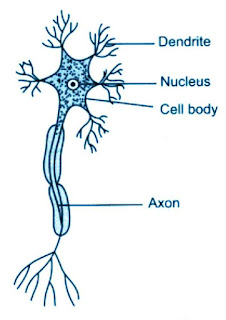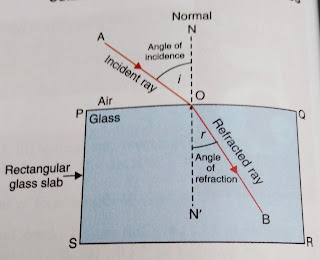NCERT Solution for Class 6 Maths Chapter 3 Playing with Numbers Ex 3.6
Playing with Numbers: Here you get NCERT Solutions for Class 6 Maths Chapter 3 Playing with Numbers Ex 3.6 with Answers Pdf free download.In NCERT Solution Class 6 Maths with Answers you get question-answer based on latest exam pattern. By providing NCERT Chapter-wise Class 6 Maths Questions with Answers our target to help students get concept of the lesson very well.
You can also visit NCERT Questions for Class 6 Maths Chapter-wise Questions with Answers to revise your syllabus thoroughly and enhance the chances of securing high marks in your board exams. It also helps in your CBSE NCERT Class 6 online test, online exam for admission well.
-------------------------------------------------------------
Board CBSE
-------------------------------------------------------------
TextBook NCERT
-------------------------------------------------------
CLASS Class 6
--------------------------------------------------------
SUBJECT Maths
----------------------------------------------------------
CHAPTER Chapter 3
-------------------------------------------------------------
SUBJECT Playing with Numbers
--------------------------------------------------------------
Visit NCERT Solutions
-------------------------------------------------------------------
NCERT Class 6 Chapter 3 Ex 3.1
NCERT Class 6 Chapter 3 Ex 3.2
NCERT Class 6 Chapter 3 Ex 3.3
NCERT Class 6 Chapter 3 Ex 3.4
NCERT Class 6 Chapter 3 Ex 3.5
NCERT Class 6 Chapter 3 Ex 3.7
You May Like
NCERT Solutions Class 6 Science
NCERT Solutions for Class 6 Maths Chapter 3 Playing with Numbers Ex 3.6 with Answers
Exercise 3.6
Question 1:
Find the H.C.F. of the following numbers:
(a) 18, 48
(b) 30, 42
(c) 18, 60
(d) 27, 63
(e) 36, 84
(f) 34, 102
(g) 70, 105, 175
(h) 91, 112, 49
(i) 18, 54, 81
(j) 12, 45, 75
Answer 1:
(a)
Prime factorisation of 18 = 2 x 3 x 3
Prime factorisation of 48 = 2 x 2 x 2 x 2 x 3
H.C.F. (18, 48) = 2 x 3 = 6
(b) Prime factorisation of 30 = 2 x 3 x 5
Prime factorisation of 42 = 2 x 3 x 7
H.C.F. (30, 42) = 2 x 3 = 6
(c) Prime factorisation of 18 = 2 x 3 x 3
Prime factorisation of 60 = 2 x 2 x 3 x 5
H.C.F. (18, 60) = 2 x 3 = 6
(d) Prime factorisation of 27 = 3 x 3 x 3
Prime factorisation of 63 = 3 x 3 x 7
H.C.F. (27, 63) = 3 x 3 = 9
(e) Prime factorisation of 36 = 2 x 2 x 3 x 3
Prime factorisation of 84 = 2 x 2 x 3 x 7
H.C.F. (36, 84) = 2 x 2 x 3 = 12
(f) Prime factorisation of 34 = 2 x 17
Prime factorisation of 102 = 2 x 3 x 17
H.C.F. (34, 102) = 2 x 17 = 34
(g) Prime factorisation of 70 = 2 x 5 x 7
Prime factorisation of 105 = 3 x 5 x 7
Prime factorisation of 175 = 5 x 5 x 7
H.C.F. of 70,105,175 = 5 x 7 = 35
(h) Prime factorisation of 91 = 7 x 13
Prime factorisation of 112 = 2 x 2 x 2 x 2 x 7
Prime factorisation of 49 = 7 x 7
H.C.F. of 49, 91, 112 = 1 x 7 = 7
(i) Prime factorisation of 18 = 2 x 3 x 3
Prime factorisation of 54 = 2 x 3 x 3 x 3
Prime factorisation of 81 = 3 x 3 x 3 x 3
H.C.F. of 18, 54, 81 = 3 x 3 = 9
(j) Prime factorisation of 12 = 2 x 2 x 3
Prime factorisation of 45 = 3 x 3 x 5
Prime factorisation of 75 = 3 x 5 x 5
H.C.F. of 12, 45, 75 = 1 x 3 = 3
Question 2:
What is the H.C.F. of two consecutive:
(a) numbers?
(b) even numbers?
(c) odd numbers?
Answer 2:
(a) H.C.F. of two consecutive numbers be 1.
(b) H.C.F. of two consecutive even numbers be 2.
(c) H.C.F. of two consecutive odd numbers be 1.
Question 3:
H.C.F. of co-prime numbers 4 and 15 was found as follows by factorization:
4 = 2 x 2 and 15 = 3 x 5 since there is no common prime factor, so H.C.F. of 4 and 15 is 0.
Is the answer correct? If not, what is the correct H.C.F.?
Answer 3:
No. The correct H.C.F. is 1.


